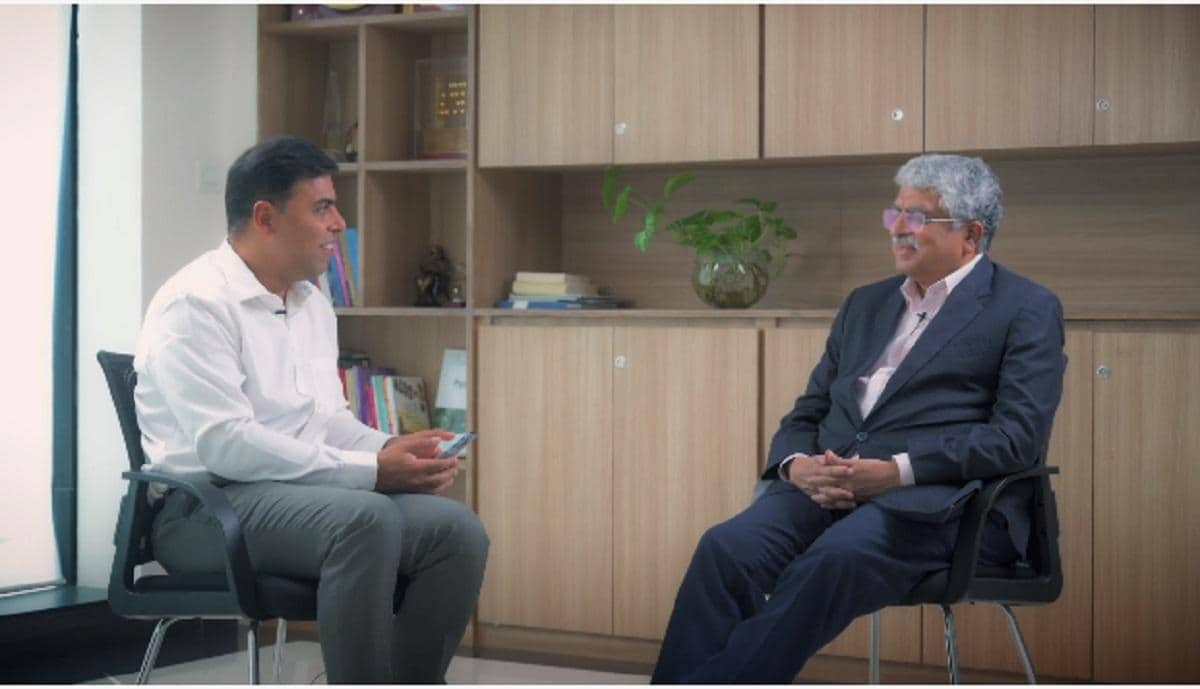Digital public infrastructure fuelling innovation, says Nandan Nilekani
India’s digital public infrastructure (DPI) ecosystem is fuelling market innovation and value creation, accelerating the emergence of new startups, and enabling them to challenge incumbents, said Nandan Nilekani, co-founder of Infosys who spearheaded the country’s unique identification project, on Thursday.
“Now clearly all the pieces are there — technology, the interfaces (DPI), and the venture money,” said Nilekani, during a fireside chat with Anil Kumar, chief executive officer, Redseer Strategy Consultants, during the consulting firm’s “Ground Zero 9.0, Resilience in Action” event here.
“I think we’ll be seeing an acceleration of startups that use the various (DPI) infrastructures that we have to build (innovations).”
He said DPI was becoming much more organised. Platforms such as the Open Network for Digital Commerce (ONDC) were creating hackathons for companies to build innovation. Antler India, a leading early-start investment platform, has created the country’s first ONDC-focused venture platform.
DPI refers to blocks or platforms such as digital identification, payments infrastructure, and data-exchange solutions. These help countries deliver essential services to their people, empowering citizens and improving lives by enabling digital inclusion.
“For instance, Aadhaar does identity and UPI (Unified Payments Interface). Then you do it for the whole population and make it very inclusive and low-cost to enable billions of transactions,” said Nilekani.
“You open it up with interfaces so anyone can build applications on top of it.”
Aadhaar and UPI are already mature programmes now. UPI does 10 billion transactions per month. Today it is used by 350 million people and 50 million merchants.
“The vegetable or the coconut vendor on the street is using UPI,” said Nilekani.
The fact that the platform is free and small transactions are widely done has enabled democratising digital payments across the country, beyond metros in small cities and towns.
“Jio is a great example. They said that ‘we want to create a mobile network for every Indian’ and dramatically cut costs, making voice (calls) free and data cheap. That is the real way to crack these big markets,” said Nilekani.
There are other similar programmes. One of them is AI4Bharat, which works on developing open-source datasets, tools, models, and applications for Indian languages. Also, the Bhashini programme aims to enable all Indians easy access to the internet and digital services in their own languages and increase content in local languages. There is the Accounts Aggregator (AA) network, a financial data-sharing system that could revolutionise investing and credit, giving millions of consumers greater access and control over their financial records and expanding the potential pool of customers for lenders and fintech companies.
Nilekani said that the private sector has been a huge beneficiary of these platforms.
In 2009, Nilekani and his team played a key role in building digital identity (Aadhaar) which could be verified anywhere online.
